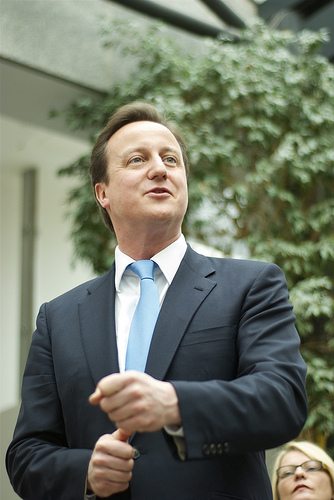

Energy
Rising energy bills prompt David Cameron to announce green tax review
Recent energy price hikes have prompted David Cameron to launch a review into green energy taxes.
Speaking during prime minister’s questions on Wednesday, Cameron said he wants to “roll back” environmental regulations in order to reduce household bills. The Lib Dems described the move as a “panicky U-turn”.
“We need to help people pay their bills and we need to help to get bills down”, the prime minister told MPs.
“We need to roll back some of the green regulations and charges that are putting up bills”
The announcement has been criticised by environmental groups who have argued that that rolling back green taxes will only be a short-term solution, and worsen the situation in the long run.
Paul King, chief executive of the UK Green Building Council, described Cameron’s comments as “incredibly short-sighted and potentially very damaging”.
This sentiment was echoed by Greenpeace, which said investment in renewable energy could actually help keep energy bills low by “reducing consumers’ exposure to the roulette wheel of international gas prices”.
Seb Beloe, head of sustainability research at WHEB Asset Management, explained why environmental measures are a long-term sustainable solution.
He said, “The wholesale cost of gas is by far and away the most important part of energy prices, and these prices are likely to remain high and volatile for the foreseeable future (with or without shale gas).
“So I think we have two choices. Get rid of environmental measures and end up with high and volatile energy prices and high and volatile energy bills (and major climate change).
“Or maintain environmental measures, which add only modestly to energy bills in the short-term, and end up with high – but stable – energy prices and lower overall energy bills, and hopefully reduced impacts of climate change.”
In response to the prime minister’s comments, the trade body the Renewable Energy Association (REA) has pointed out that renewables policy makes up only 3% of average bills overall and less than a third of the government’s green levies. As a result, rolling back these regulations will have a very small impact on bills.
The organisation also warned that Cameron was risking undermining investor confidence at a time when investment in new low-carbon capacity was desperately needed.
REA chief executive Dr Nina Skorupska said, “Renewables are the only low-carbon options on the table to bridge the near term capacity crunch, which will bite well before new nuclear or shale gas come on-stream.”
Further reading:
Government to test cost of green energy policies amid rising bills
Npower to increase energy prices by 10.4% in December
British Gas announces energy bills hike
26% think UK energy production will fall short of demand by 2018
Archbishop of Canterbury calls on energy firms to act generously


 Environment12 months ago
Environment12 months agoAre Polymer Banknotes: an Eco-Friendly Trend or a Groundswell?

 Features11 months ago
Features11 months agoEco-Friendly Cryptocurrencies: Sustainable Investment Choices

 Features12 months ago
Features12 months agoEco-Friendly Crypto Traders Must Find the Right Exchange

 Energy11 months ago
Energy11 months agoThe Growing Role of Solar Panels in Ireland’s Energy Future





























